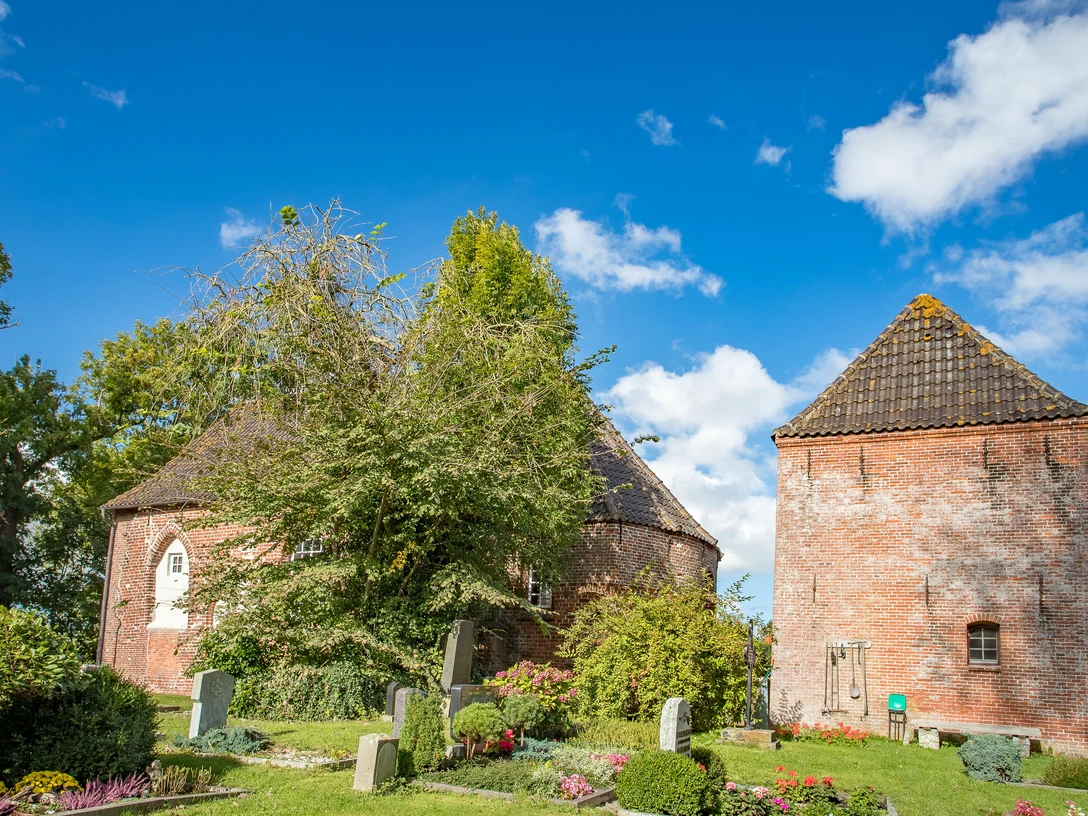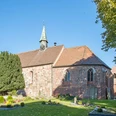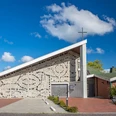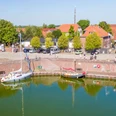Die Kirche ist nach dem Heiligen Jodocus, dem Schutzpatron der Reisenden und Seefahrer benannt und gilt als Wahrzeichen friesischer Ziegelbaukunst, da sie hauptsächlich als Backsteinbau errichtet wurde.Wir finden eine bereits ursprünglich mit flacher Holzbalkendecke versehene Kapelle aus dem Ende des 15. Jahrhunderts vor, mit einem frei stehenden Glockenturm aus Backstein und einem ziegelgedeckten Walmdach aus der zweiten Hälfte des 16. Jahrhunderts.
Die Kapelle wird im Jahre 1497 urkundlich erwähnt und wurde mutmaßlich von jenem Bevölkerungsteil, der von Strandraub lebte, als flach gedeckter Saalbau ohne Chor, ohne Apsis und ohne Turm errichtet. Das ehemalige Kirchspiel „Hoonsdeep” (Hohenstief) wird Ende des 18. Jahrhunderts nach der Kirche St. Joost benannt. Gegenüber der Kirche befinden sich unsere Gemeinderäume (Alte Pastorei).
Gottesdienst: monatlich, sonntags, 10 Uhr, sowie alle zwei Monate am 1. Sonntag des Monats ein Abendgottesdienst um 19 Uhr (siehe Aushang)
Besichtigung: Besichtigung/Führung nach Absprache
Die Kapelle wird im Jahre 1497 urkundlich erwähnt und wurde mutmaßlich von jenem Bevölkerungsteil, der von Strandraub lebte, als flach gedeckter Saalbau ohne Chor, ohne Apsis und ohne Turm errichtet. Das ehemalige Kirchspiel „Hoonsdeep” (Hohenstief) wird Ende des 18. Jahrhunderts nach der Kirche St. Joost benannt. Gegenüber der Kirche befinden sich unsere Gemeinderäume (Alte Pastorei).
Gottesdienst: monatlich, sonntags, 10 Uhr, sowie alle zwei Monate am 1. Sonntag des Monats ein Abendgottesdienst um 19 Uhr (siehe Aushang)
Besichtigung: Besichtigung/Führung nach Absprache
Good to know
Eligibility
Suitable for any weather
Payment methods
free of charge
Author
Organization
Wangerland Touristik GmbH
License (master data)
Wangerland Touristik GmbH
Nearby




